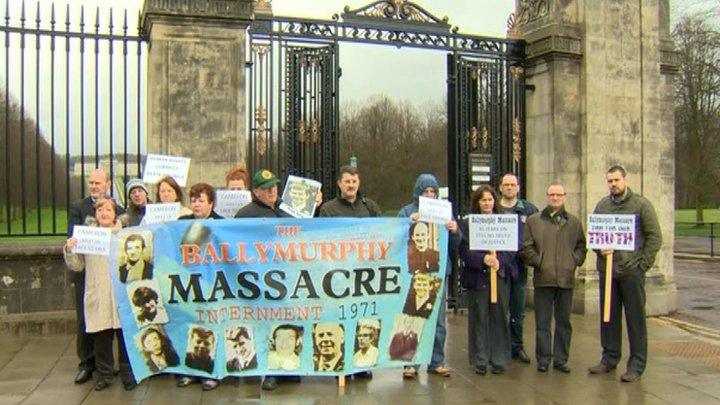Legacy inquests: Lord chief justice disappointed over funding bid
- Published
Lord Chief Justice Sir Declan Morgan called for Troubles legacy issues to be addressed as a matter of urgency
Northern Ireland's most senior judge has said he is disappointed the Stormont executive has not yet bid for legacy inquest funding.
In a statement to the BBC, Lord Chief Justice Sir Declan Morgan said the incoming executive needed to agree a way forward "as a matter of urgency".
Ministers failed to sign off on a request for funding made by Sir Declan.
He wanted the funding for a five-year programme to hear the inquests.
But, the proposed bid for the money was not even discussed by the executive before the last Northern Ireland Assembly was dissolved.
Denied
Sir Declan said plans for dealing with outstanding inquests were "dependent on the provision of additional resources".
"The length of time it takes for a decision to be made on funding will, therefore, affect the timeframe for the establishment of the proposed new legacy inquest unit."
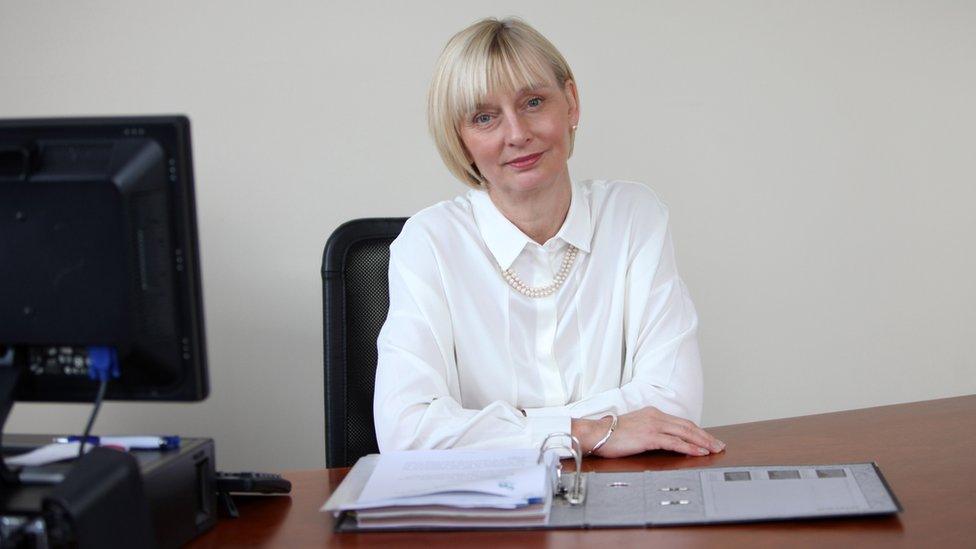
Judith Thompson said the issue of funding legacy inquests had "always been difficult"
The victims' commissioner, who promotes the interests of victims, said doing nothing over historical inquests "is not an option".
She said the issue of funding had been "always been difficult" and the "complication" of Thursday's Northern Ireland Assembly election "had the potential to slow up decisions".
But she added: "I know there is a will on all sides to move this very important issue forward.
"I can reassure the families that we will redouble our efforts to make this happen as soon as possible."
Implementing Sir Declan's proposal must be the "number one agenda" for the executive on its return after the election, the human rights organisation Amnesty International said.
"Justice delayed is justice denied," its Northern Ireland director Patrick Corrigan said.
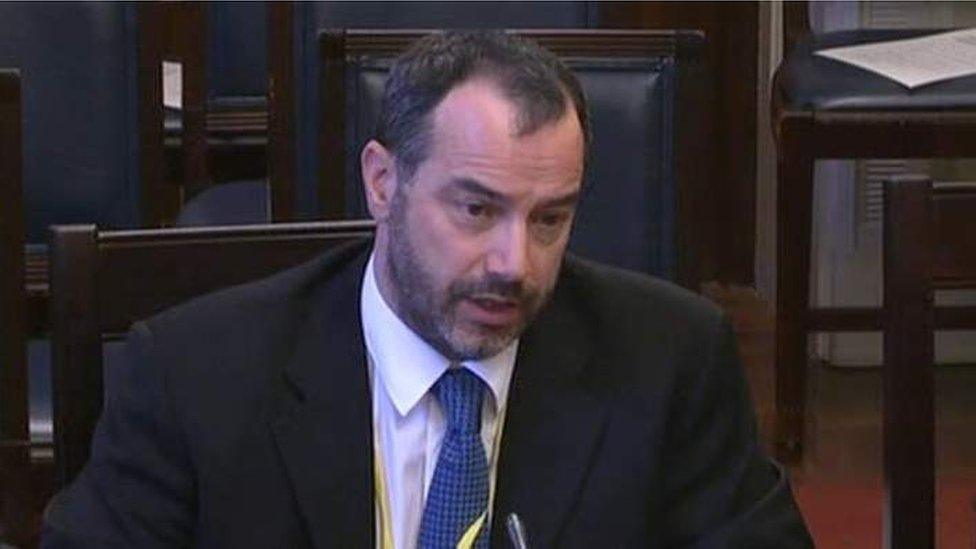
Amnesty's Patrick Corrigan said it was 'extremely disappointing' that the plan was on hold
"Here we have scores of families who have been denied even inquests for decades now into the deaths of their loved ones.
"They deserve those inquests, have a right to them, and such rights shouldn't become bargaining chips in some kind of political game and that seems to be what's going on."
Impacted
Under the executive's rules, the funding proposal needed the agreement of the first and deputy first ministers to make it on to the agenda for discussion.
Several sources have told the BBC that First Minister Arlene Foster blocked its inclusion.
In a statement on Tuesday, Mrs Foster's Democratic Unionist Party said the proposal would have impacted on the ability of the executive to address the needs of innocent victims.
It said the issue will be considered again by the new executive formed after this week's assembly elections.
- Published4 May 2016
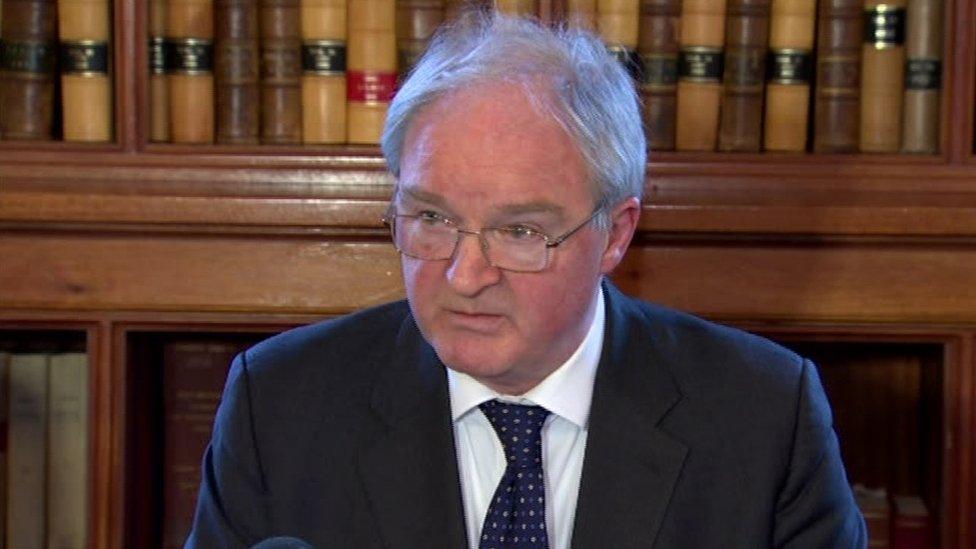
- Published3 May 2016
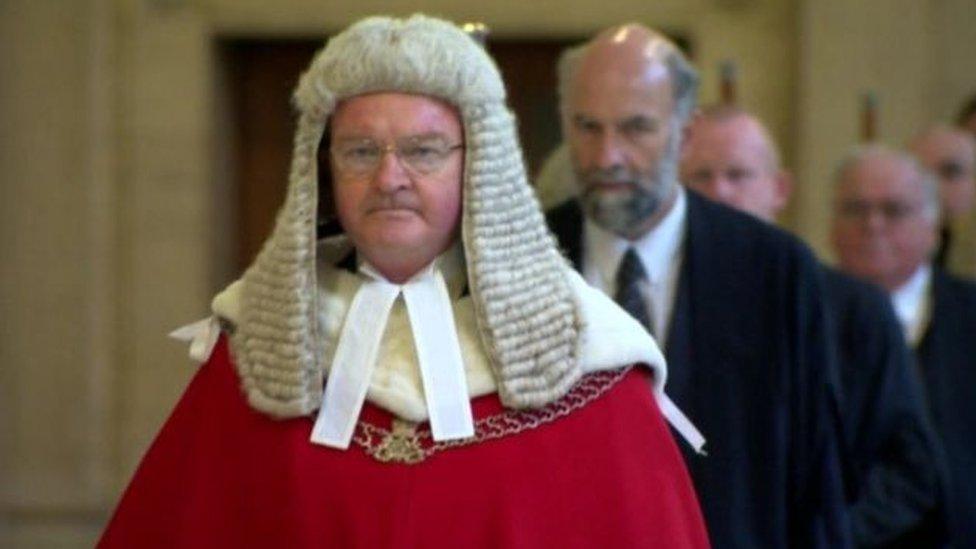
- Published3 May 2016
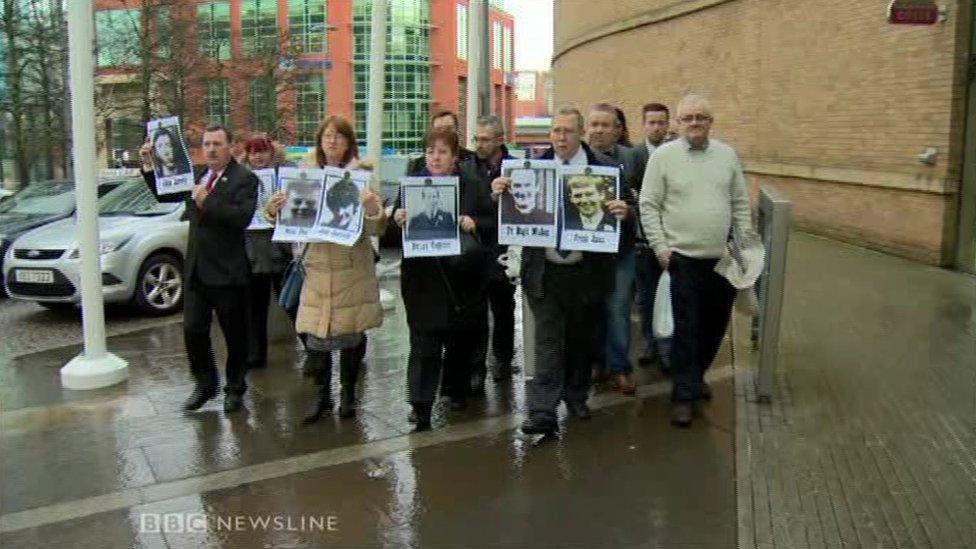
- Published12 February 2016

- Published10 March 2016
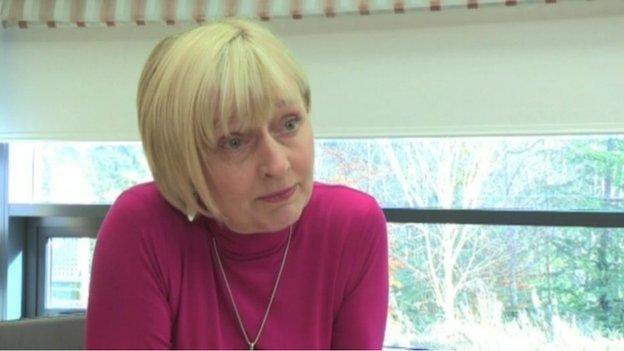
- Published18 January 2016
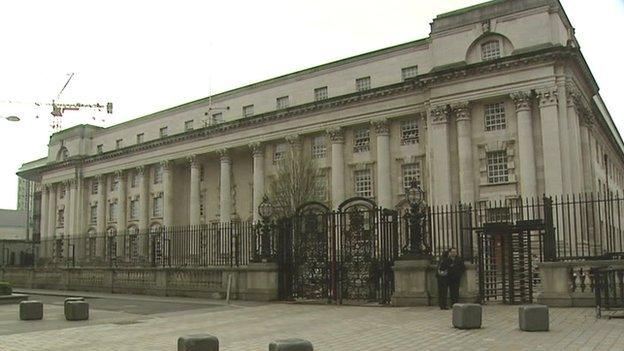
- Published27 March 2015
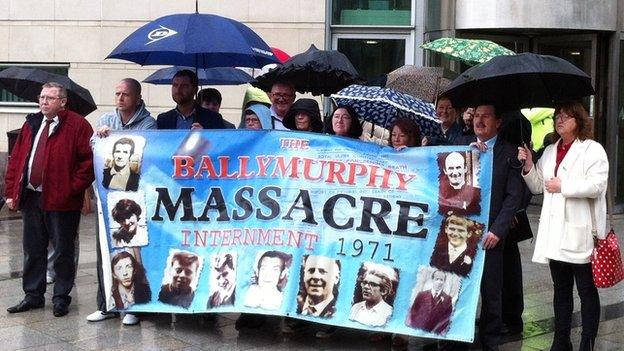
- Published26 March 2015
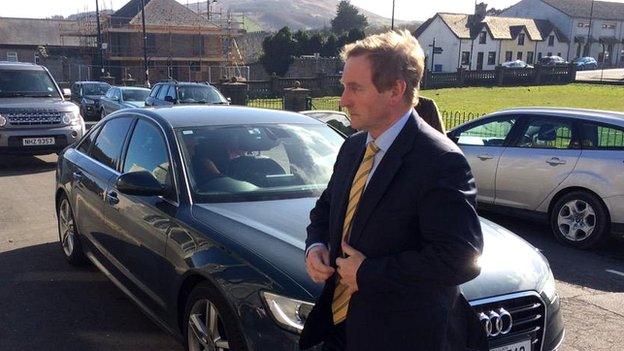
- Published27 June 2014
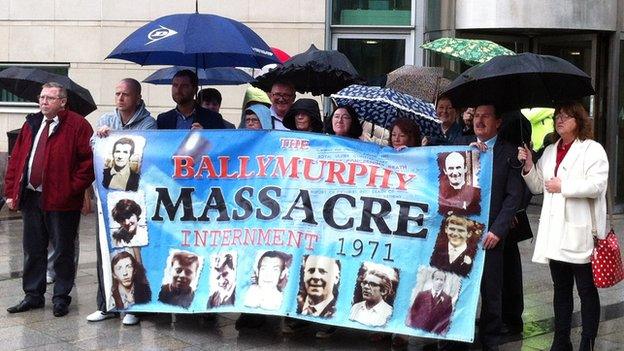
- Published30 January 2014
